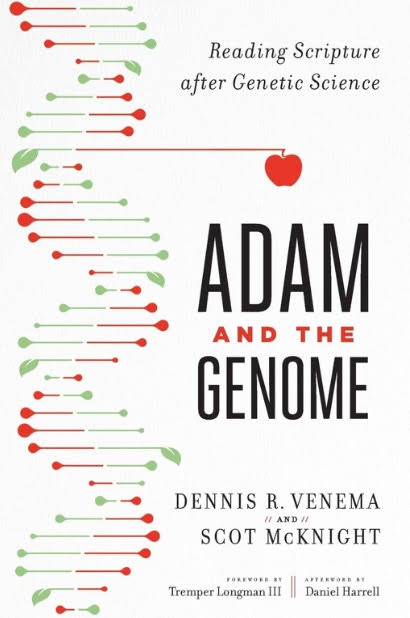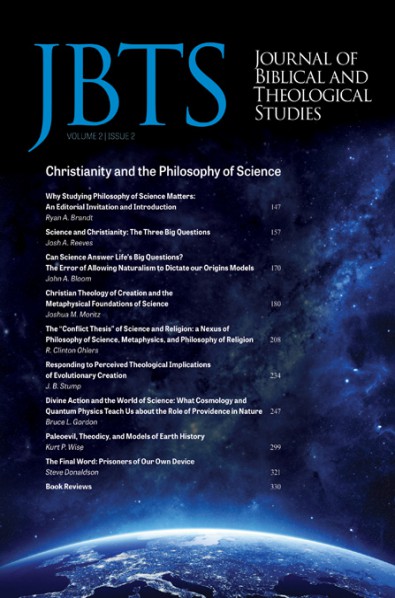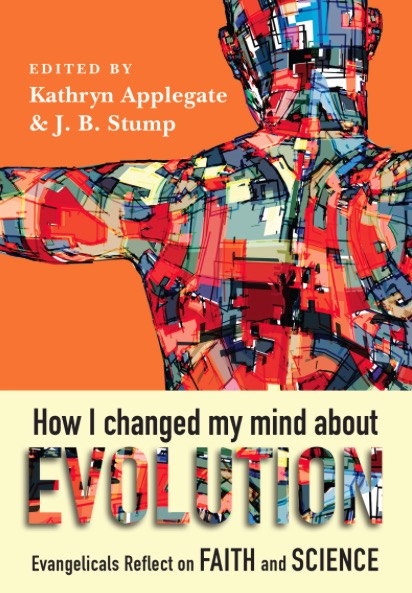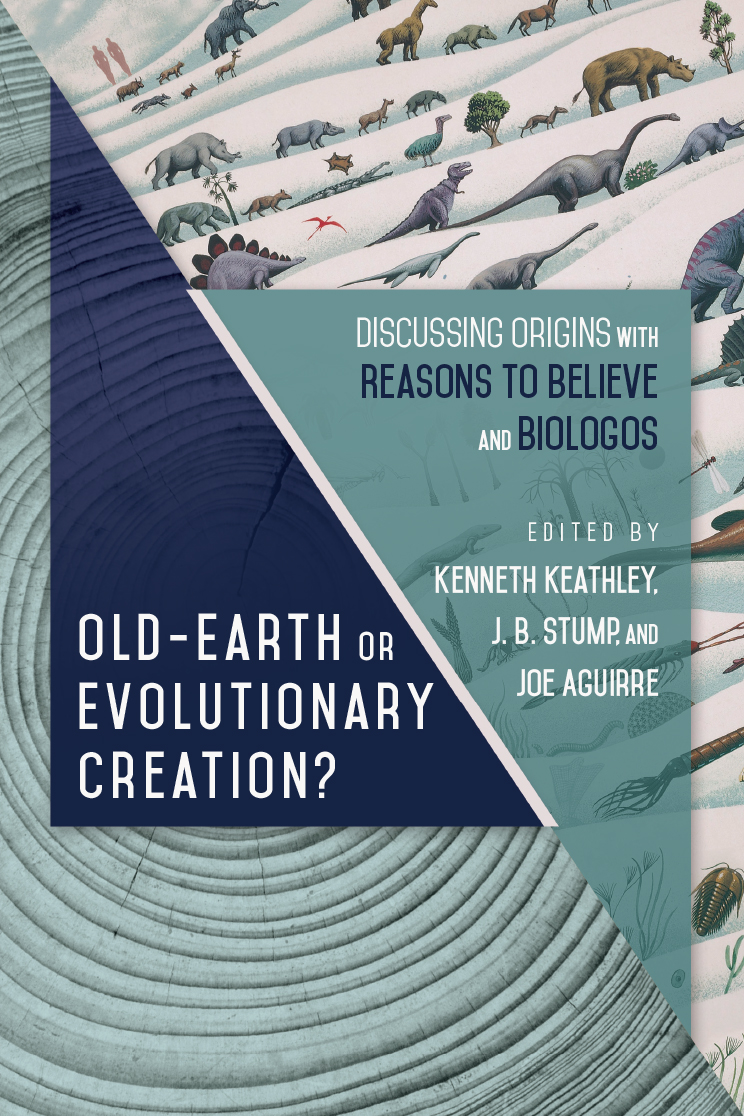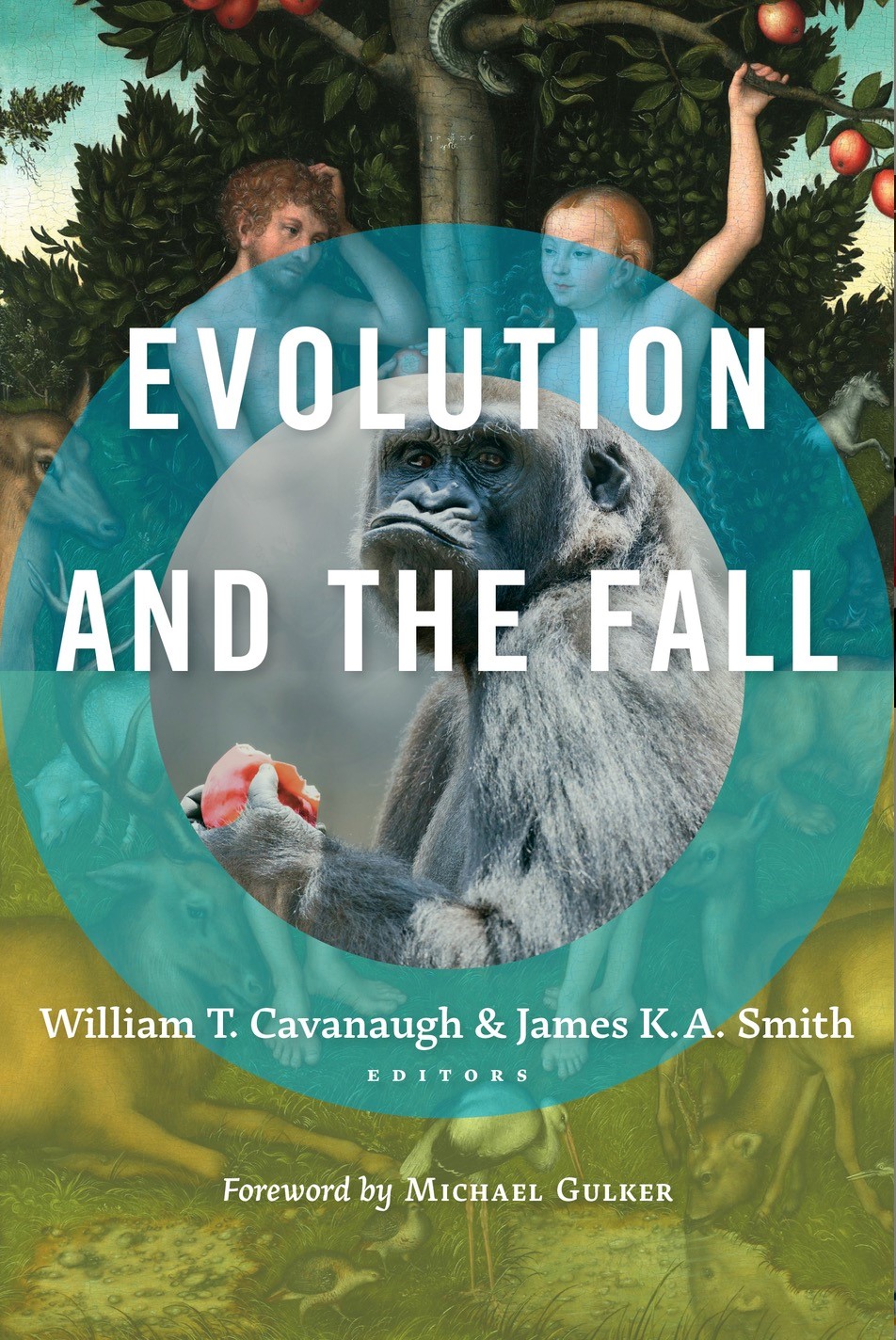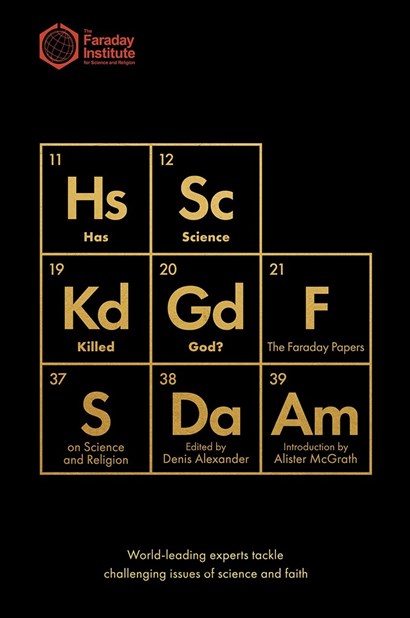


Intelligent Design: Good Science? Good Theology? Or…?
Allan John Day, November 2005.
Download PDF
Intelligent Design: Good Science? Good Theology? Or…?
Allan John Day
Allan John Day is Emeritus Professor of Physiology, the University of Melbourne, a Senior Academic Fellow, Ridley College, and a Fellow of ISCAST.
Abstract
This article first appeared in The Melbourne Anglican, September 2005, and is reproduced here with permission. It argues that the ID (Intelligent Design) position is flawed philosophically, confusing metaphysics with physics, and scientifically, because it cannot be tested scientifically.
Key words
Intelligent Design, Evolution, Creation. Naturalism, Creationism, Michael Behe, Science and Faith, Science Teaching.
Most scientists who are Christians would consider that science and faith are complementary approaches to truth and that the pursuit of science by appropriate scientific methods does not negate their understanding of God as creator and designer of the cosmos. They would understand science as exploring the secondary mechanisms used by God who is the ultimate cause. Thus theistic evolution presents no problem for most Christians, Catholic and Protestant. Scientifically, evolution, understood as the progressive development of more complex biological life is strongly supported by the evidence. Indeed it forms much of the framework of modern biology. Why then all the fuss about Intelligent Design? Is it simply a statement of the Christian worldview of God as creator, sustainer, and designer? Well, no it is not!
There is a body of Christians who consider evolution to be intrinsically materialistic and therefore any science which supports it is to be opposed as contrary to theistic belief. There has therefore been an attempt to discredit evolution on ideological grounds, not by the appropriate use of science, but on the basis that there is an alternative theistic science which can be pursued outside the basic scientific method. ID is the latest attempt to do this—to assert that creation science is science and should be pursued and taught in parallel with conventionally accepted science. It is perhaps not surprising that the ID concept has been opposed by both Christian and secular biologists. It is both bad science and bad theology.
ID is not simply the concept that there is a god behind the universe—a designer—a concept that, as a metaphysical world view, is consistent with the findings of science, but neither established nor negated by them.
ID asserts that there are certain aspects of biology that exhibit ‘irreducible complexity’ and therefore cannot be explained by evolutionary processes, nor indeed be subject to scientific investigation. The proper ‘scientific explanation’ therefore is to insert design as a mechanism.
ID was first conceived about 12 years ago by a meeting of antievolutionary philosophers, scientists and activists and promoted by William Dembski,—a philosopher and mathematician—in his book Intelligent Design—the bridge between science and theology (Dembski 1999), and by Michael Behe, a biochemist, in his book Darwin’s Black Box—the biochemical challenge to evolution (Behe 1996).
The opening words of Dembski’s book provide his definition:
ID is three things, a scientific research program that investigates the effect of intelligent causes, an intellectual movement that challenges Darwinism and its naturalistic legacy, and a way of understanding divine action—ID thus intersects science and theology.
It is clear from Dembski’s words that there is a conflation of science and metaphysics and a clear antievolution ideology. This has been the clear presupposition of those who promote ID on the public platform, such as Phillip Johnson, where evolution is equated with ‘naturalistic’ evolution, a materialistic force, rather than as a scientific mechanism to be embraced scientifically if it meets proper scientific criteria.
Michael Behe provides the scientific background to ID. He maintains that ID is a purely scientific approach, without ideological overtones. This aspect is widely canvassed in the current public discussion. Behe makes much of the ‘irreducible complexity’ of certain biological mechanisms. He asserts that certain biological processes are too complex or multifaceted to be explained by conventional science and therefore it is necessary to insert design as a mechanism. The examples given by Behe include the action of flagella—‘bacterial tails’, the human eye, the complex chemical blood coagulation mechanism etc. He describes in great scientific detail the nature of some of these mechanisms maintaining that many consist of different components that could not have been derived by evolutionary mechanisms, but only by postulating ID to fill the gaps. ID is thus based on the scientific description of complex systems and the unscientific assertion that science cannot explain these further without postulating ID. We thus have a contradiction of terms. ID cannot be tested scientifically and yet it is presented as a scientific mechanism for life processes. There is therefore a clear confusion of science with metaphysics. Even Behe recognizes that ID cannot be tested.
He states:
…Hypotheses, careful testing, replicability—all these have served science well. How can an intelligent designer be tested? Can he be put in a test tube? No of course not?
(Behe, 1996, p. 242)
There is little encouragement therefore from the mouths of its founding fathers that ID is a purely scientific theory. This is why ID as science has been denounced by scientific bodies, not on ideological grounds but on scientific methodological grounds. It is simply a reiteration of the long discounted concept of a ‘god of the gaps’. It is the argument that our scientific ignorance today leaves a place to be filled by god—a god of the gaps. Such a god becomes smaller and smaller with each advance of science. Gaps in science however are to be filled by doing more and better science not by postulating a god to fill them.
Many of the examples of ‘irreducible complexity’ described by Behe have been exploded by subsequent scientific work, as has been discussed by Kenneth Miller (who is both a prominent Catholic layman and eminent US biological scientist) in his book Finding Darwin’s God (Miller 1999).
In summary then, I would maintain that the ID position is flawed philosophically, scientifically and theologically.
It is flawed philosophically because it confuses metaphysics (religious belief) with physics (science). The Christian (and indeed Jewish and Muslim) doctrine of creation asserts that God is the Creator and Sustainer of the cosmos. This world view contrasts with that of secular humanists who deny divine action. Scientists who hold either of these world views however can (and do) maintain that the exploration of nature in all of its complexity should be explored by scientific methods
Scientifically it is flawed in that it proposes a ‘secondary cause’ that cannot be tested scientifically. Theologically the god of ID is a ‘god of the gaps’, a cog in the machine, rather than the Christian God of the bible or of the creeds—‘God the Creator of heaven and earth’. We are thus as Christians presented with a theology that sells God short—a God who gets smaller with each advance of science.
I would make a plea for some critical thinking about these issues, before Christians and those engaged in Christian education and science are seduced into pursuing such an inadequate view of both science and religion.
References
Behe, M 1996, Darwin’s Black box—the biochemical challenge to evolution, Touchstone, New York
Dembski, W 1999, Intelligent Design—the bridge between science and theology, Intervarsity Press, Downers Grove, Ill, USA
Miller, K 1999, Finding Darwin’s God, Harper Collins, New York
